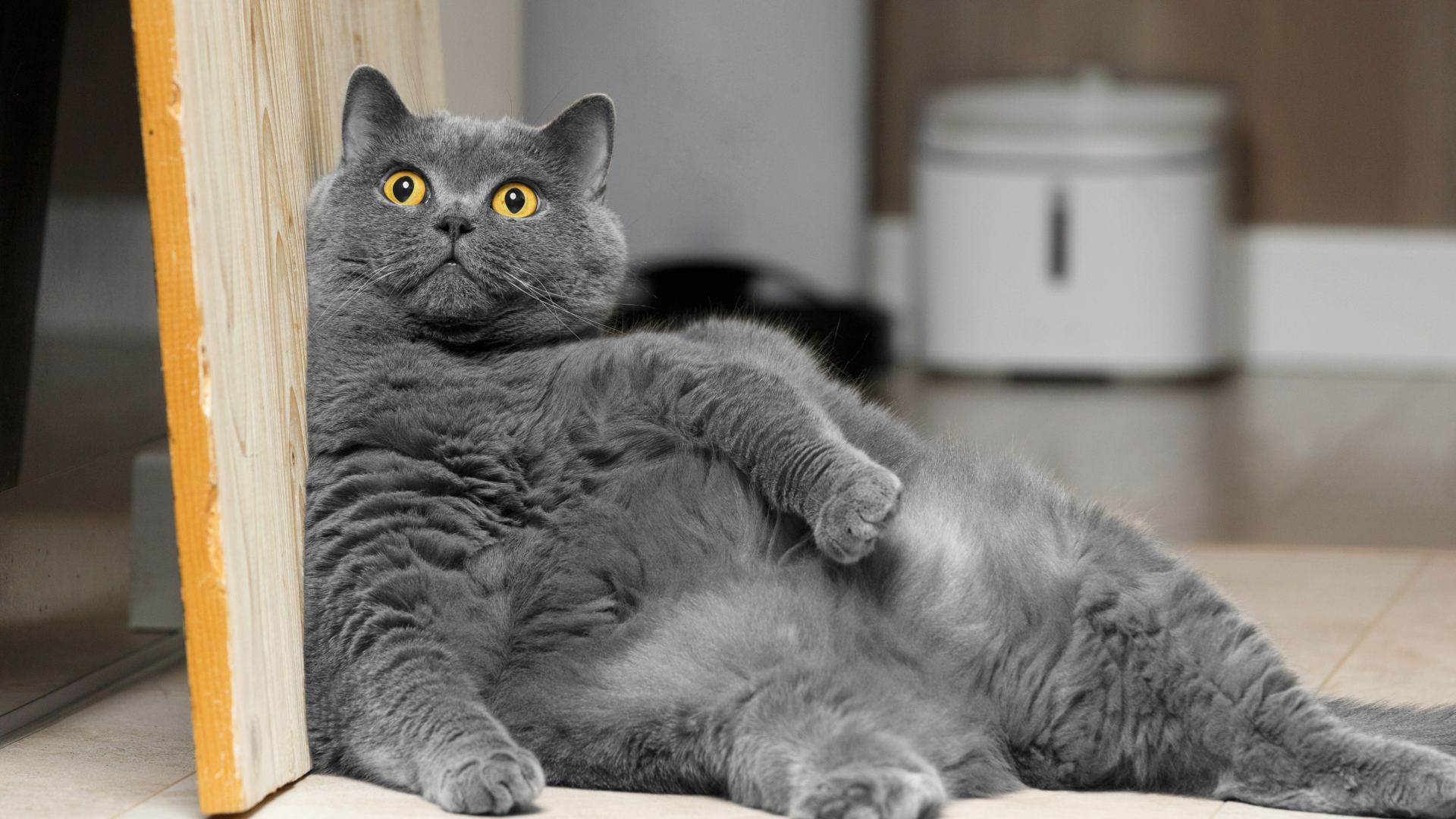What are the best small pets?
What are the best small pets? Nine small pets that are perfect for kids
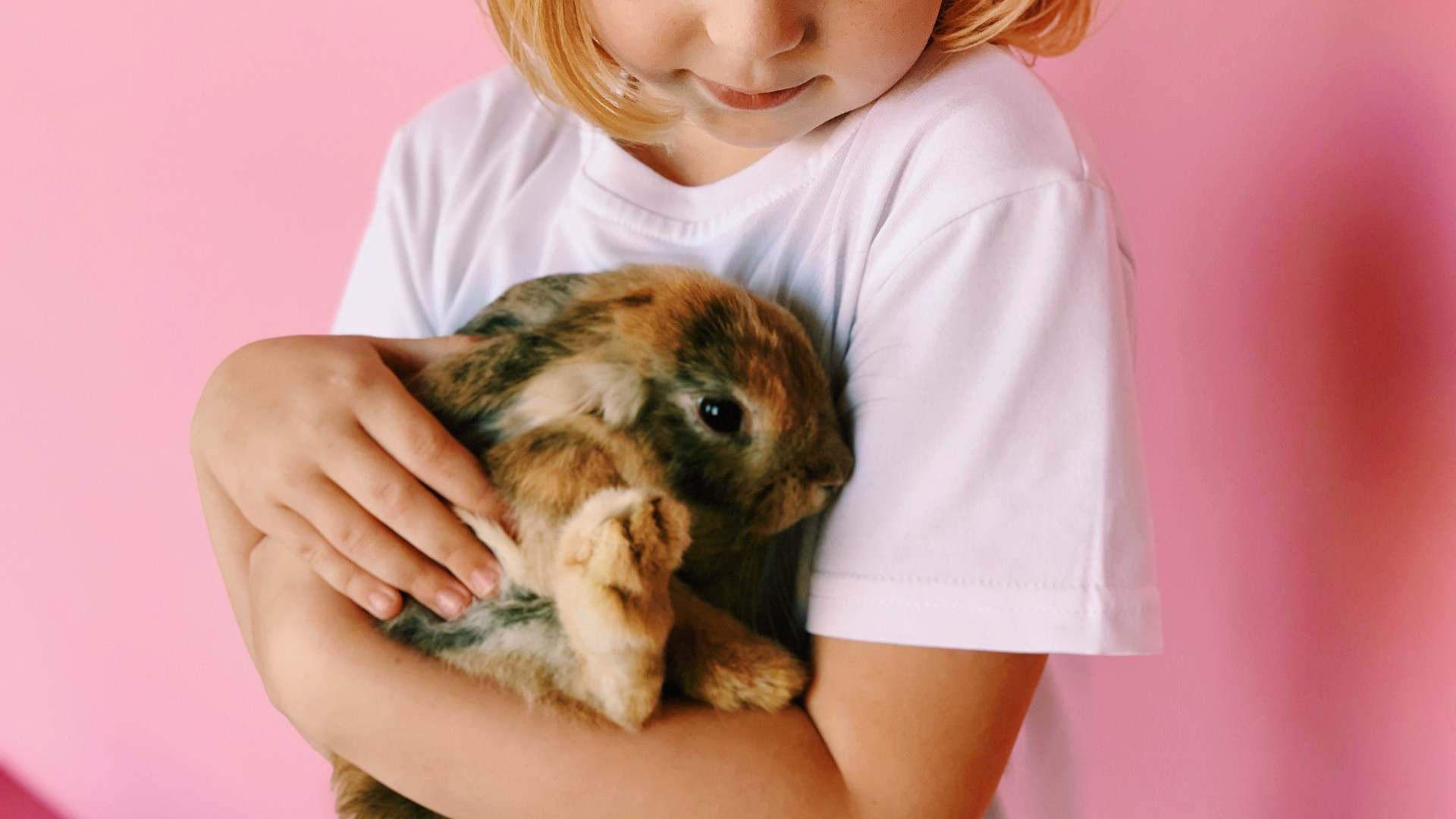
Small pets are a great way to introduce kids to the responsibility of pet ownership. They don't require as much time or effort as dogs and cats do, but they can teach your kids how to care for pets, how to keep track of their feeding, and how to ensure they keep them safe and happy.
Commonly referred to as 'pocket pets,' these smaller creatures include reptiles rodents, birds, small mammals, and fish. They require just as much care as a larger animal, but won't be as boisterous as a dog or as potentially destructive as a cat. That means they can feel more approachable to small children, and can feel like a nice entry-level pet for them.
While dogs and cats are often the most popular choice for those looking to welcome a furkid into the family, for children who aren’t quite ready for that level of responsibility, our favorite small pets for kids can be a great alternative.
It's been proven that introducing a pet into your child's life can have a lot of advantages when it comes to mental health and confidence. Research has shown that children who develop positive feelings towards animals at a young age often have higher self-esteem and confidence and more readily display empathy and compassion. We love that!
Having a small pet can also teach kids important life lessons that will help them cope with life events they may encounter as they age. Small pets often have shorter life spans than dogs and cats, which means your children will encounter illness and death early on in life - while sad, this is a great opportunity to teach them about the cycle of life, and how to value all living things.
Keep in mind, however, that a small pet isn't a fix-all. Your child's interest in the pet may wax and wane, so it's crucial that you sit down and set boundaries and rules about care. Are you going to be the one who ends up caring for a new gerbil? If so, be prepared for this!
Also, be sure to do your research when buying a small pet, don't just head to a store and pick out the first thing. You may need to buy one of the best indoor rabbit hutches or a cage for small mammals, rodents, and birds, and you'll want to know the best options available. For fish, you may want to look into the best small fish tanks to ensure cleaning and care is somewhat easier.
If you're undecided about which pocket pet to go for, we've got you covered. We’ll take you through our nine favorite small pets for kids (in no particular order) so that you can make the best decision for you and your family.
- Best small dog breeds for kids
- How to care for a house rabbit
- Five tips for owners of indoor rabbits
- The friendliest dog breeds that will fit right into your family
PetsRadar's pick of the best small pets for kids
1. Gerbils
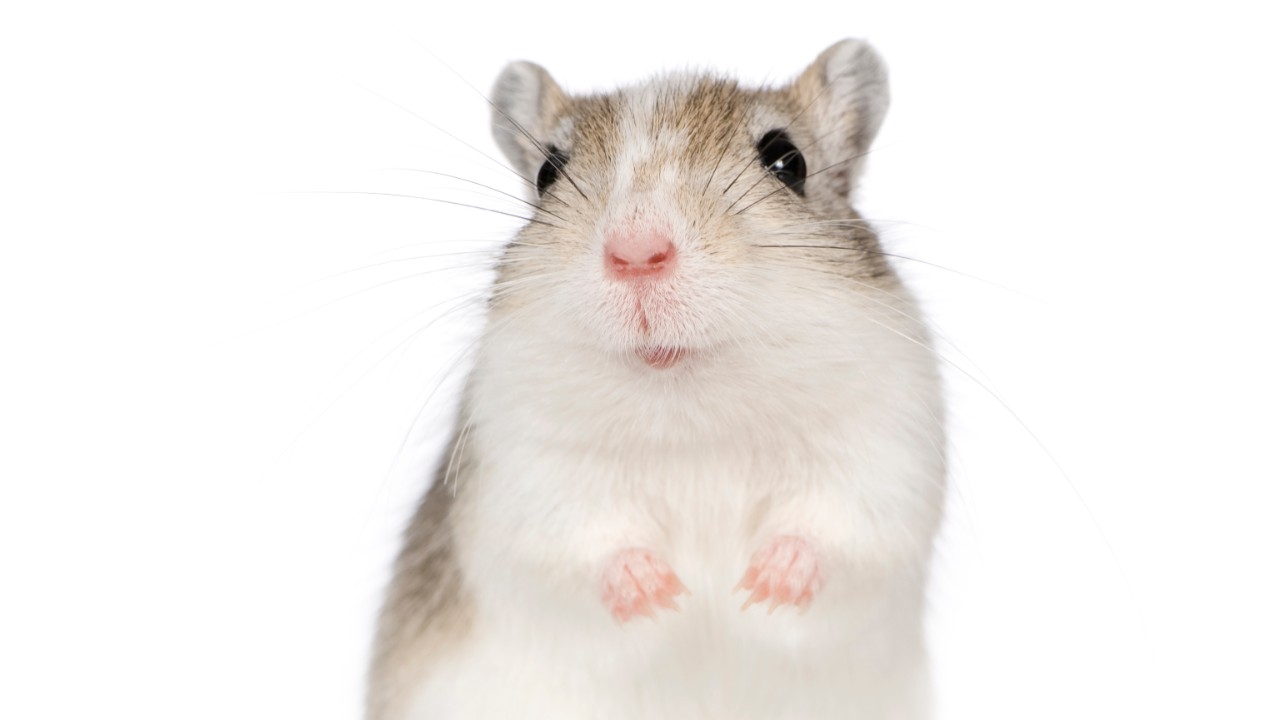
Gerbillinae: (various species)
Class: Mammalia
Diet: Omnivore
Lifespan: 2–4+ years
Adult weight: 1.8–3.5oz
This desert dweller is a great pet for kids. Although similar in appearance to hamsters, gerbils are surprisingly distinct in terms of their habits and behaviors. Not least of all, they’re diurnal (active during the day), so they’re far more entertaining for younger children, who will be sleeping when hamsters come to life. Gerbils do need a companion or two, however, and they love to dig, so expect a bit of mess.
2. Guinea pigs
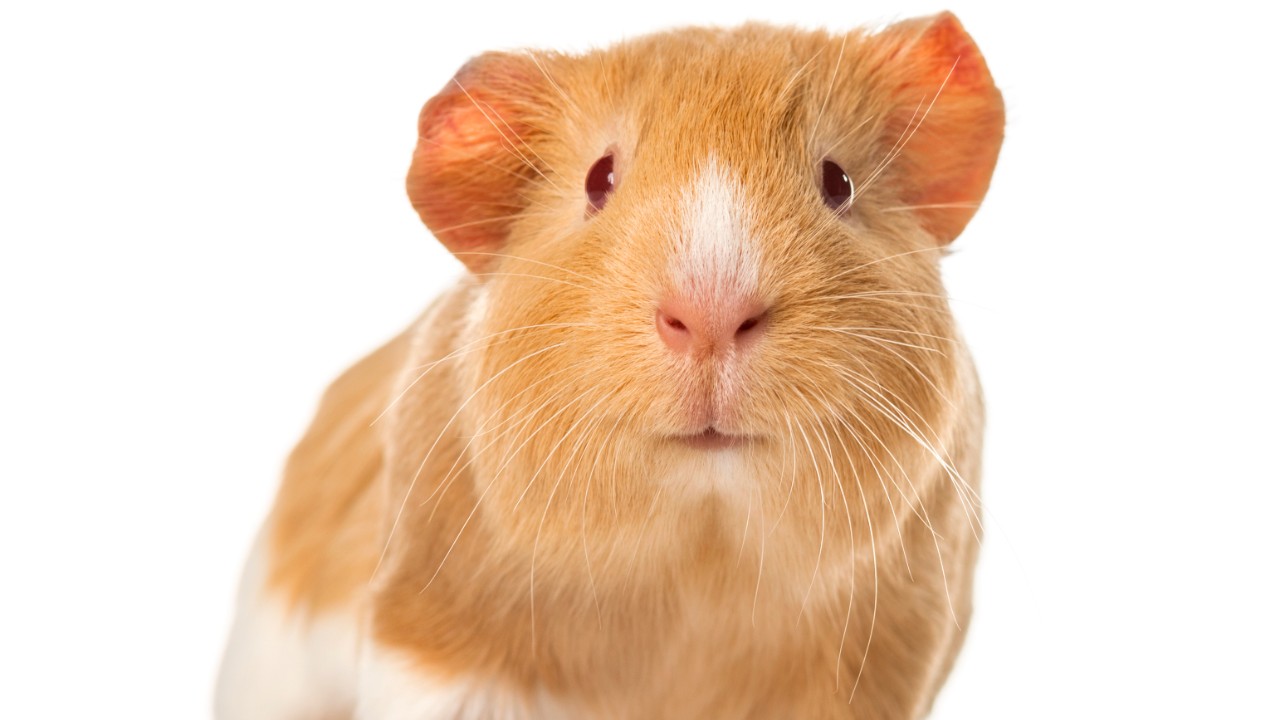
Cavia porcellus
Class: Mammalia
Diet: Herbivore
Lifespan: 4–6+ years
Adult weight: 2.2lb
Like rabbits, guinea pigs are natural group animals that need to live with at least one other of their kind. Their accommodation should offer lots of space to run, places to hide and, if possible, some lawn to graze on (you can find a little collapsible pen for them to take them outside and let them roam - but make sure they can't escape). They enjoy interaction with humans, so you should factor in some daily time to be with them. Typically reaching five or six years old, guinea pigs are a good in-between option between shorter-lived rodents like mice and longer-lived alternatives like chinchillas.
- How long do guinea pigs live? Your top six guinea pig questions answered
- Best guinea pig breeds: Which breed suits you best?
- Do guinea pigs sleep? Five tips from a vet for keeping your guinea pig healthy
3. Mice
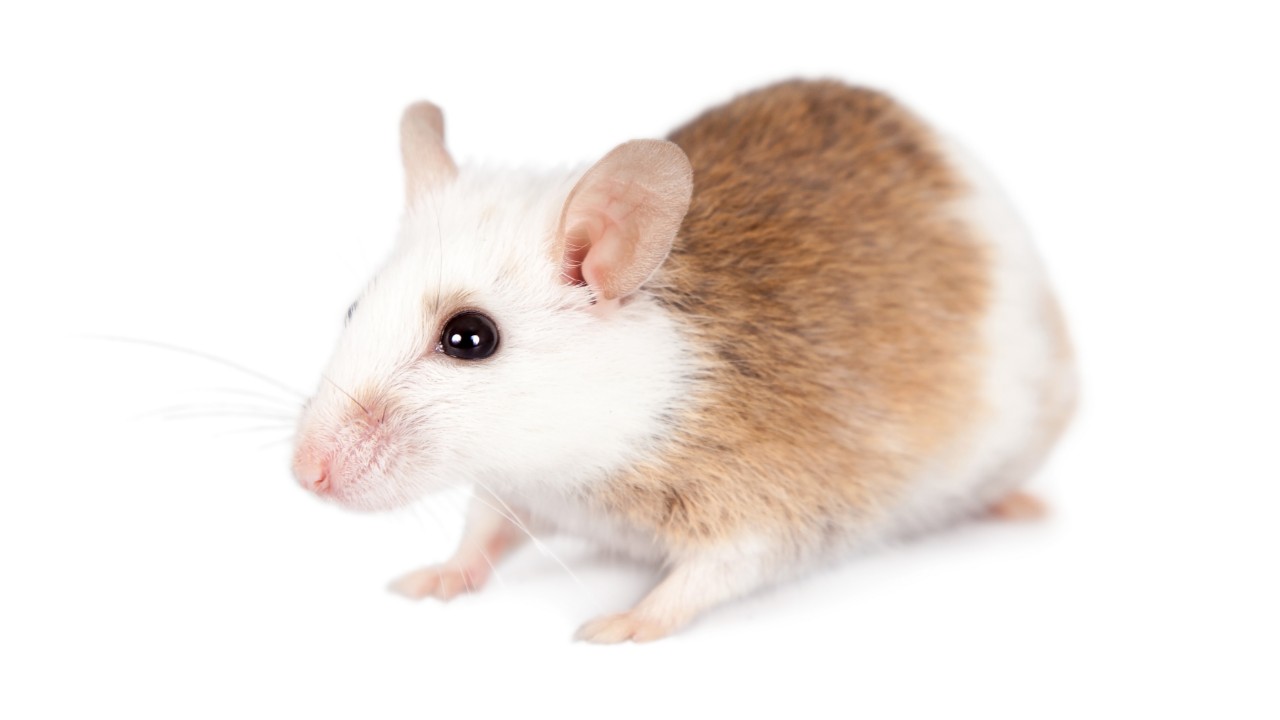
Mus musculus domesticus
Class: Mammalia
Diet: Omnivore
Lifespan: 1–2 years
Adult weight: 0.4–1.4oz
Mice require very little, making them a perfect candidate for smaller homes. If you keep a couple or a small group, they’re fairly self-sufficient socially too – just avoid putting males together as they will fight. Given their undemanding nature and short lifespan of one to two years, mice make a fantastic first pet for older children.
4. Birds
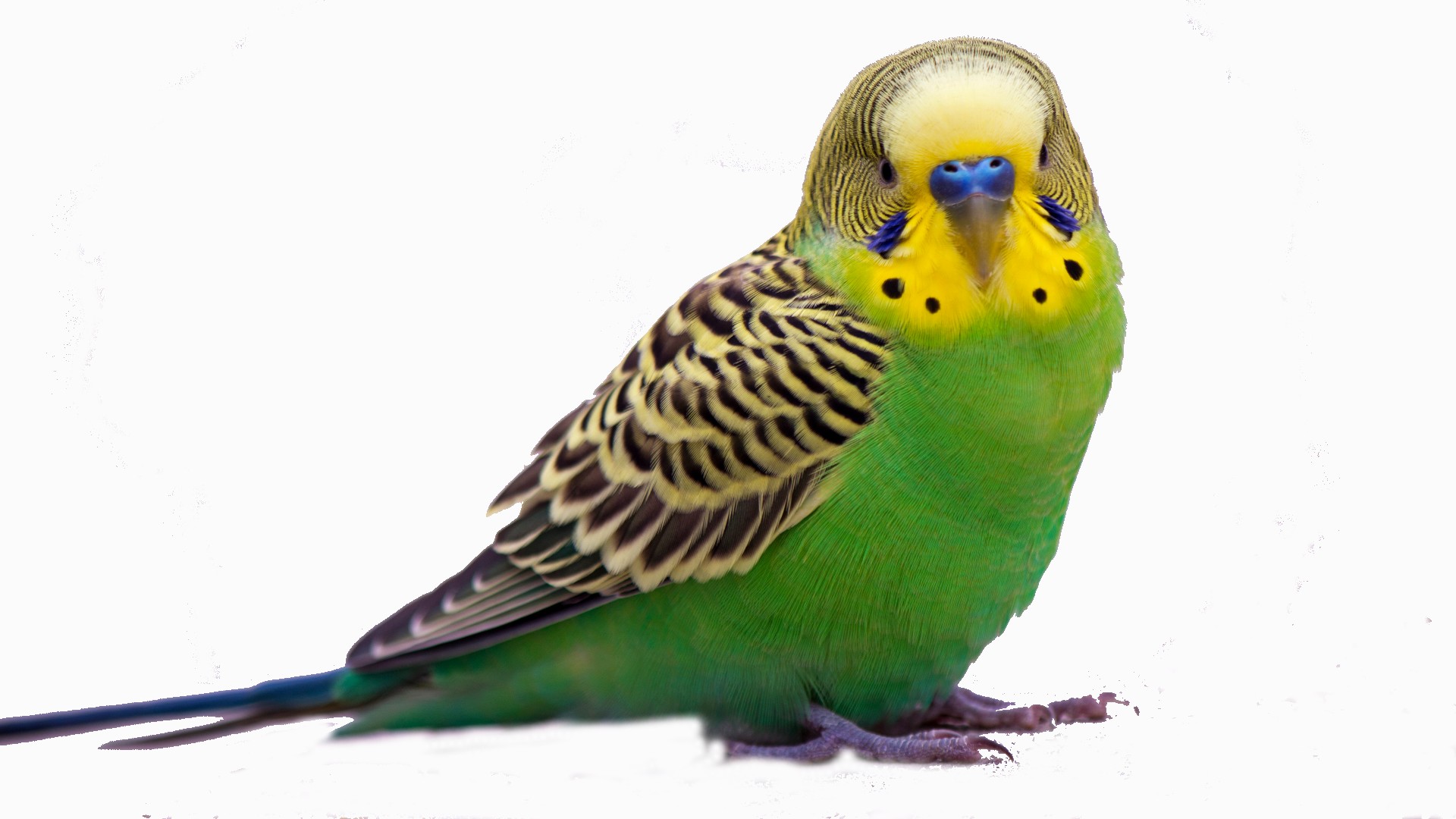
M. undulatus
Class: Aves
Diet: Omnivore
Lifespan: 5–8 years
Adult weight: 1.1–1.4oz
For the budding aviculturist, a feathered friend is likely to prove a real delight, and with so many different breeds, you’re bound to find the perfect fit. If you’re after a colorful bird that can tolerate some handling and is easy to look after, Budgies top the list. Most Budgies are very sweet and can be hand-fed, so if your child wants a bird they can interact with, it’s a great choice. Older children may prefer the charming Cockatiel, which loves being out of its cage and can be trained to talk and do tricks.
5. Hamsters
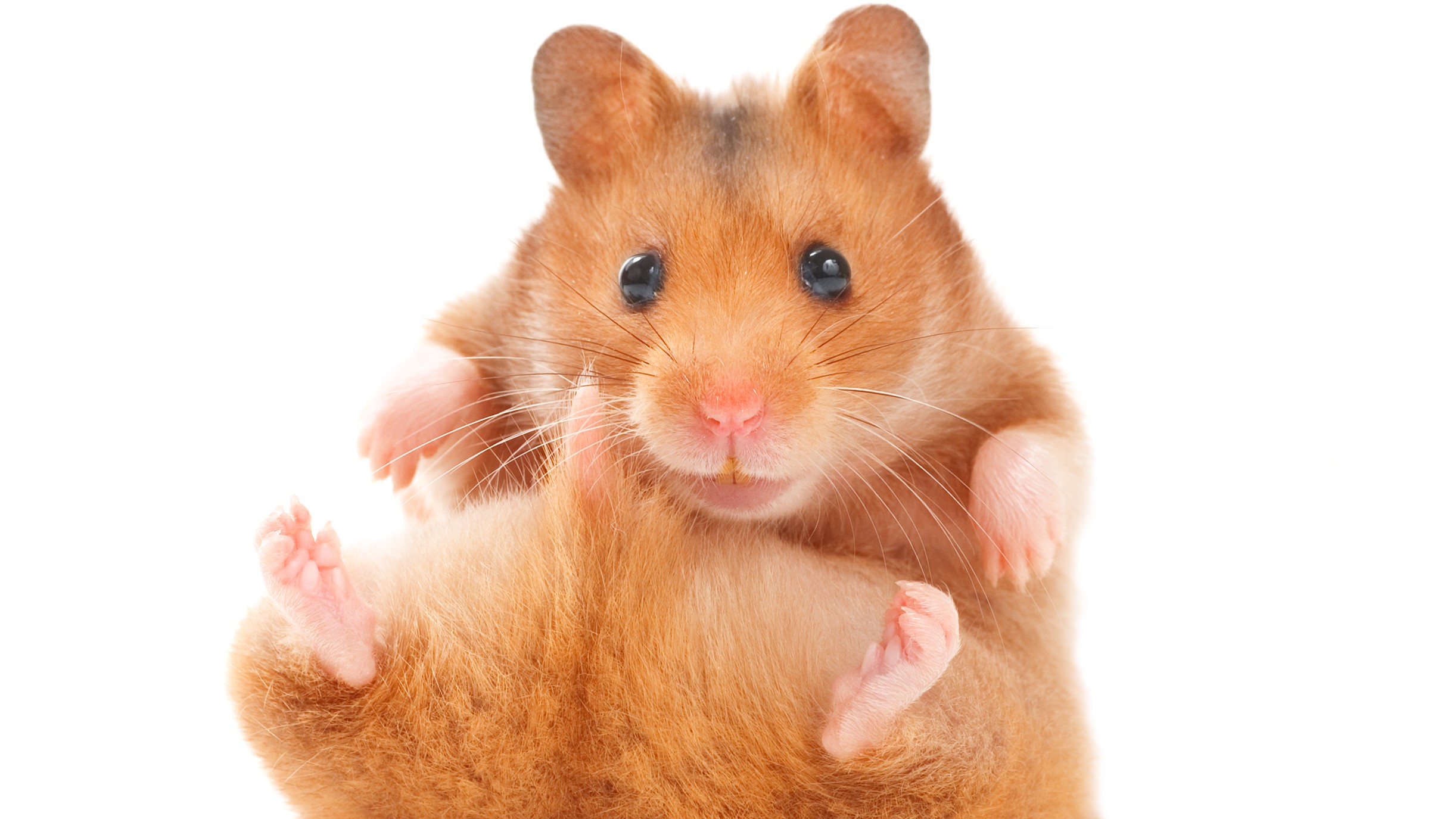
Cricetinae (various species)
Class: Mammalia
Diet: Omnivore
Lifespan: 2–3 years
Adult weight: 5.3oz
While some of the larger ‘small and furries’ benefit from outdoor accommodation, hamsters can live indoors all year round so are ideal for apartments or houses without gardens. They’re also happy to live on their own, which helps to keep costs down. Do bear in mind that these animals are naturally nocturnal so they can make a lot of noise at night. Think carefully before positioning their cage in a bedroom!
6. Rats
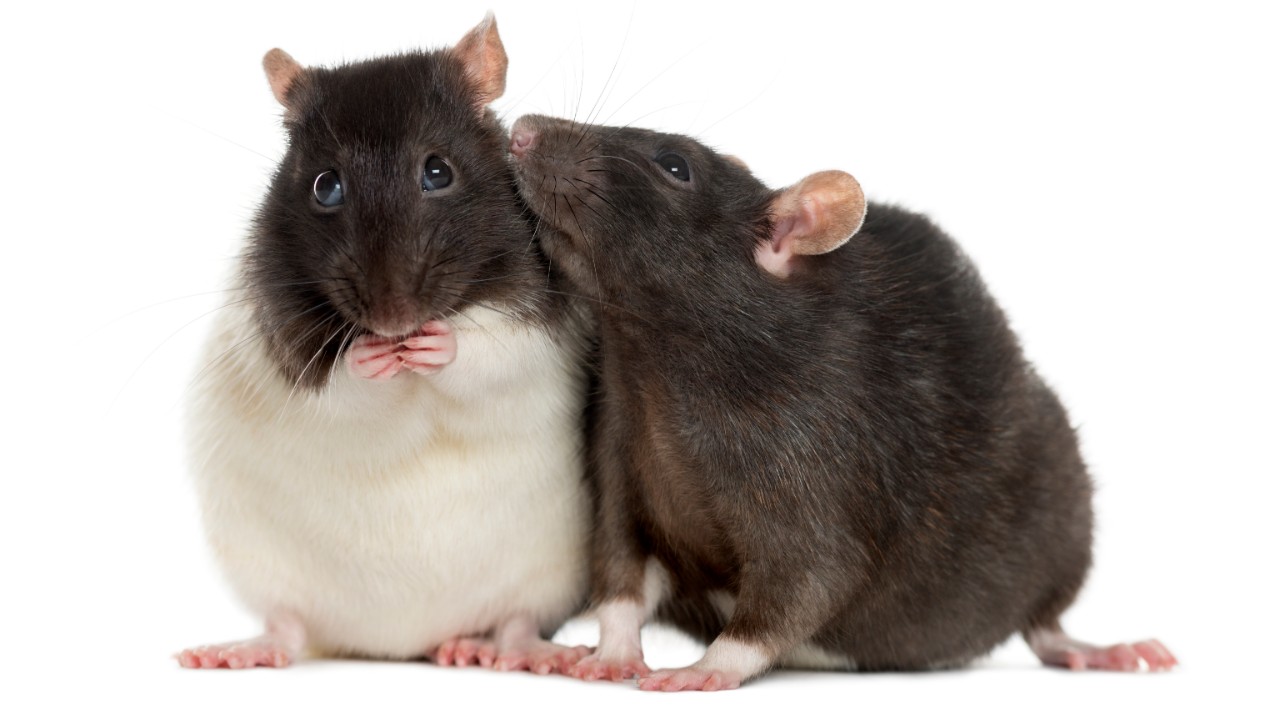
Rattus norvegicus domestica
Class: Mammalia
Diet: Omnivore
Lifespan: 2–3 years
Adult weight: 12.3–23.9oz
They still have something of a bad rep, but the humble rat can be a very loving and surprisingly smart member of your family, one capable of learning numerous tricks – in fact, some people call them the ‘dogs of the rodent world’. Despite what you might expect, they’re also among the cleanest pets, though they do have a distinct odour that may not be for you.
7. Degu
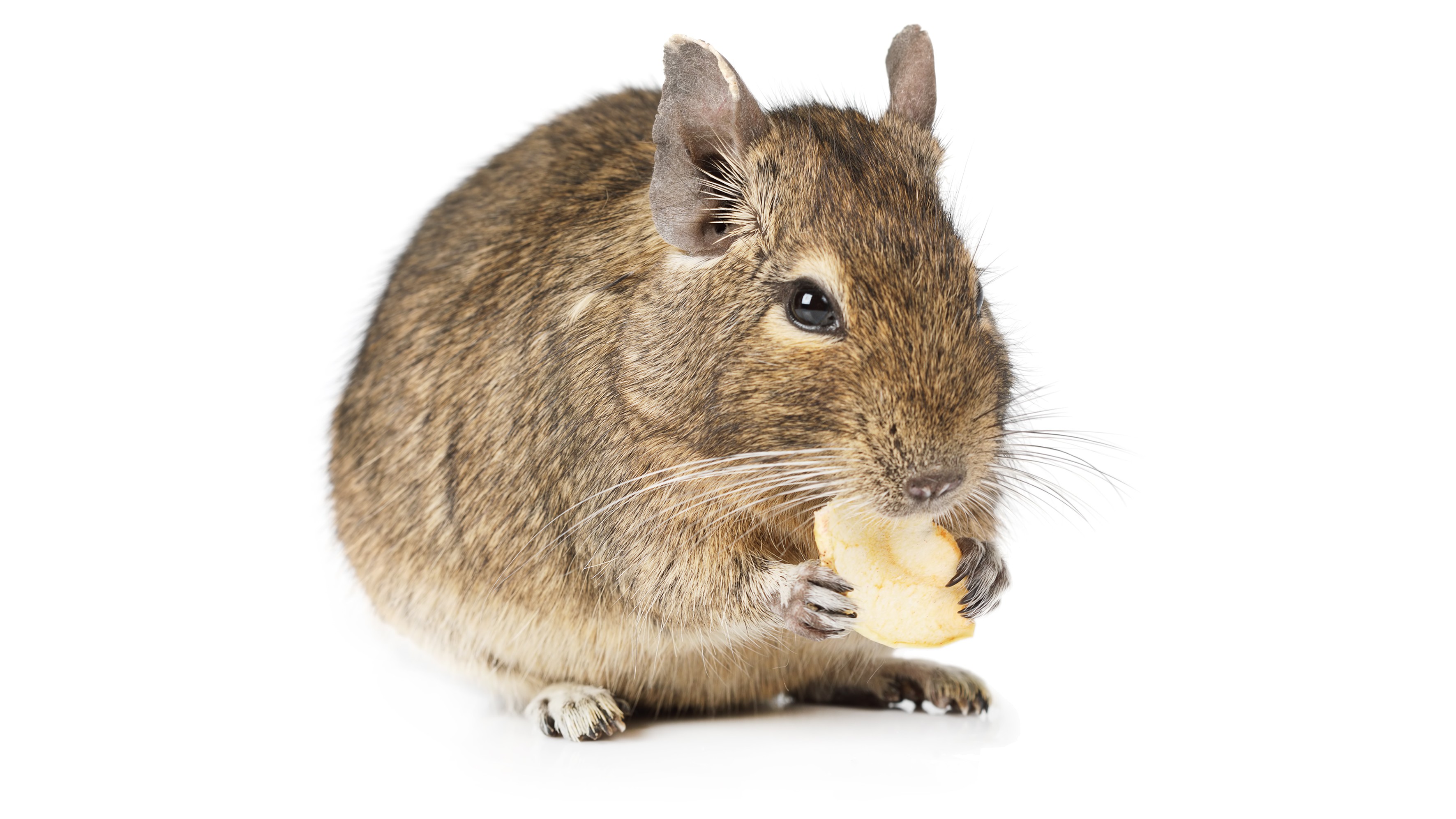
Octodon degus
Class: Mammalia
Diet: Herbivore
Lifespan: 6–8+ years
Adult weight: 6–10.6oz
Not sure if you’re looking at a rat, a chinchilla, or a hamster? It could well be a degu – a rodent native to Chile. These are very active critters and therefore appreciate lots of recreational accessories in their homes. Although happy to be handled, a word of warning: never pick up or pull on a degu’s tail. As a self-defence mechanism, they’ve evolved to be able to shed this appendage and that would certainly cause quite a fright!
8. Rabbits
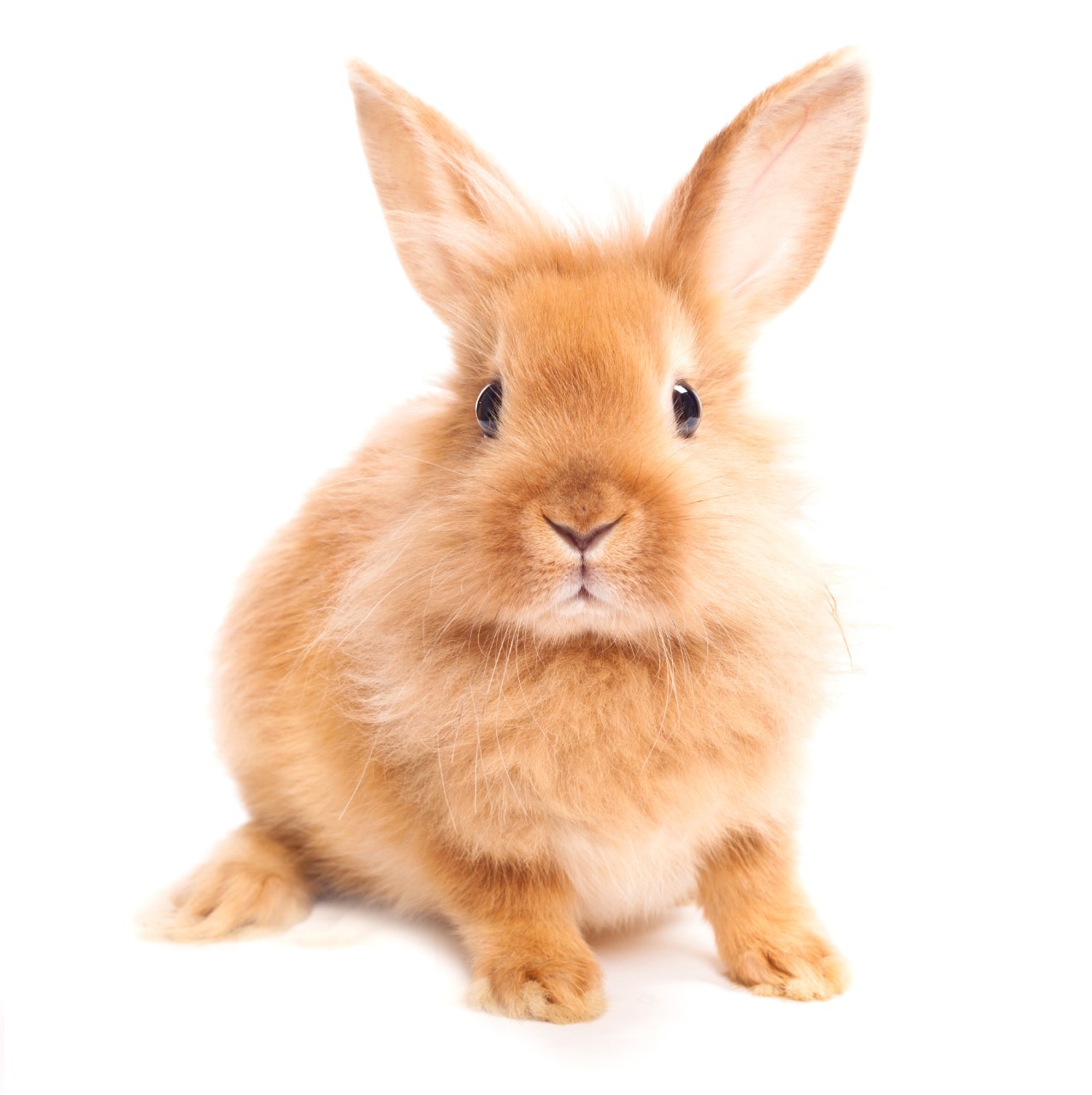
Oryctolagus cuniculus
Class: Mammalia
Diet: Herbivore
Lifespan: 8–12 years
Adult weight: 2.2–4.4lb
Rabbits are some of the most demanding small mammal pets, so never rush into buying one. As social creatures, they’re happiest living in small groups, so you should be prepared to take on at least two. They also require plenty of space for exercise and can live for well over a decade. The flipside to their lengthy lifespans means that they can truly become long-term members of your family home, developing distinct personalities and providing years of affection. Rabbits are a better option for adults and older children as they’re naturally timid and not keen on being cuddled, which given how cute they are can be difficult for younger children to understand.
- The best rabbit runs: Keep your bunnies safe and happy
- Best rabbit toys: Make sure your bunny never gets bored
- Best indoor rabbit hutches: Six top dwellings for house bunnies
9. Fish
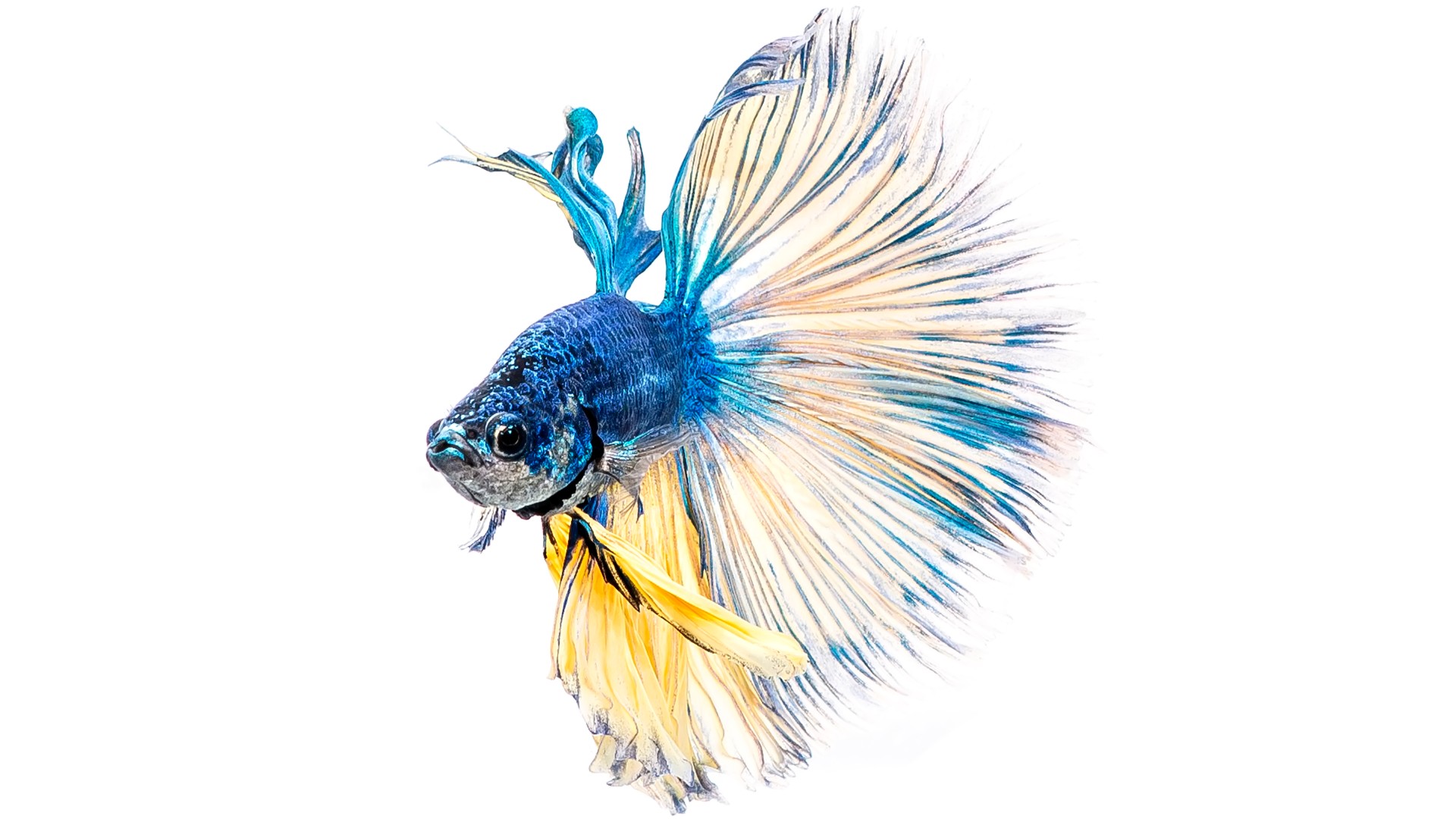
B. splendens
Class: Osphronemidae
Diet: Carnivorous - zooplankton and small crustaceans
Lifespan: 2–5 years
Adult weight: Up to 2lb
Many young children find the colors of fish to be utterly captivating and they’re a safe choice as the fact that they can’t be taken out of the water means there’s zero chance your child (or the fish!) is going to come to any harm. We recommend choosing a hardy and low-maintenance breed like the stunning Siamese Fighting Fish. Striking yet tough, they can survive in just about any water conditions.
PetsRadar Newsletter
Get the best advice, tips and top tech for your beloved Pets
Dave has over 20 years experience in publishing during which he launched many successful magazine titles including How It Works, All About Space and All About History. He’s also pet parent to a retired police dog called Rebel, who can’t work anymore due to a health condition. When’s not busy trying to amuse a boisterous, three-year-old German Shepherd, Dave's the Editor on PetsRadar.

